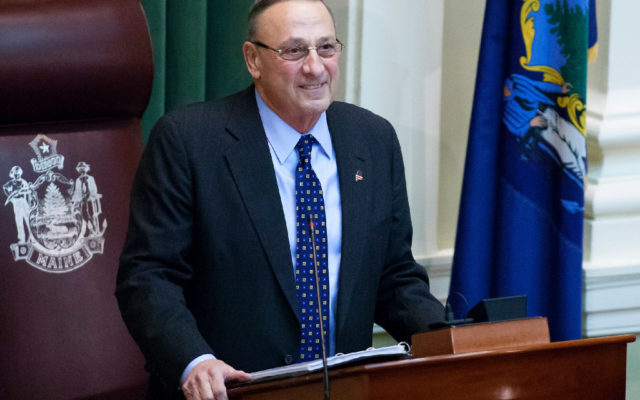
Mainers can overcome addictions with right help
Mainers who have overcome drug addiction have powerful stories and when they share their struggle it is hard to ignore.
When Health and Human Services Secretary Tom Price and President Trump senior advisor Kellyanne Conway visited Maine last week, most of the media tried to ignore the reason why they were here.
There were articles claiming the Trump administration and Maine is at odds over a narcan bill I introduced. However, that was fake news. We are not at odds about this bill and all the media wanted to do was create controversy.
The media failed to focus on the real issues. The real issues are the people who shared their stories of addiction; the doctors who shared their experience with addiction; the advocates who work day in and day out with people who want to recover from their addiction.
More than a dozen people met with Secretary Price to share their knowledge about opioid addiction and how we can move forward to help save lives. THIS is the real story.
Maine loses one person per day to drug overdose. In 2016, 376 people died because their addiction was more powerful than they were.
Liza Parker is a 26 year old mother of two who doesn’t want to die. A year ago she was addicted to heroin, and selling it to feed her addiction. She says “she let the drugs take over.” It was one year ago she pledged to take back her life. A year clean, a job and a new home, Liza has done just that.
She received help from Open Door Recovery in Ellsworth like many other mothers have. Open Door Recovery was the right solution for Liza and it is for many young women. It’s why our administration will continue to see that Open Door remains an option for addicts who want help.
The Department of Health and Human Services announced recently that $5 million will be used to treat opioid addiction by focusing on what works best for the individual.
There are other programs available to help Mainers, as well. We are currently working to open a 200-bed inpatient facility at the state prison in Southern Maine.
And I have asked the group that met last week with Secretary Price to meet again. Maine can be a leader on reducing opioid addiction in our state and bringing awareness to this problem we face as a society.
There are many approaches we may take regarding opioid abuse, addiction, treatment, recovery and education and prevention. Law enforcement will continue to be a top priority to scourge the drugs from coming into our state.
And we also want to focus on ensuring addicts who want help receive the appropriate help they need. It’s simply not enough to provide a treatment option for an individual. We must assess the addict and choose a course of action that will place that person on a successful path to recovery.
Every person is different and what works for Liza may not work for someone else. The important piece is that we are appropriately assessing addicts and which treatment plan is best suited for the person.
I want to thank everyone who works to reduce drug addiction in our state — you may be a survivor who shares your story, a doctor who guides addicts toward recovery or a law enforcement officer who encounters someone at their worst.
I look forward to meeting with this group again to listen to their ideas on how we can help save more lives.
Republican Gov. Paul LePage has served as the 74th governor of Maine since 2011. Prior to his time as governor, LePage served as the general manager of Marden’s and as the mayor of Waterville.